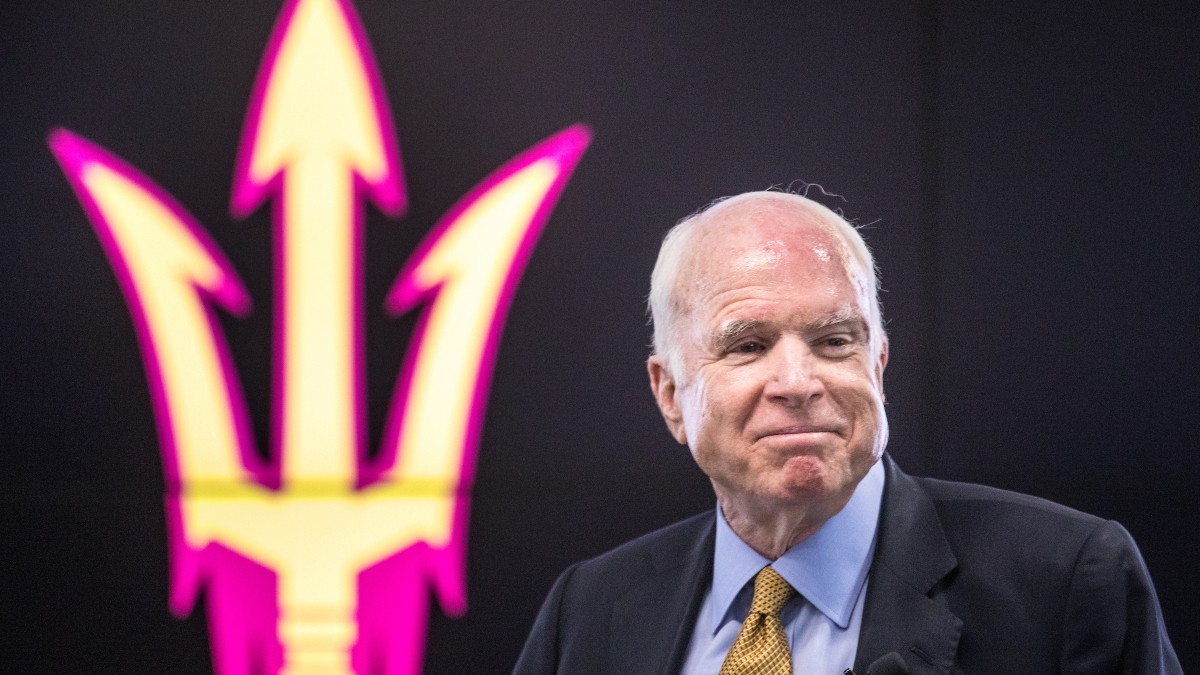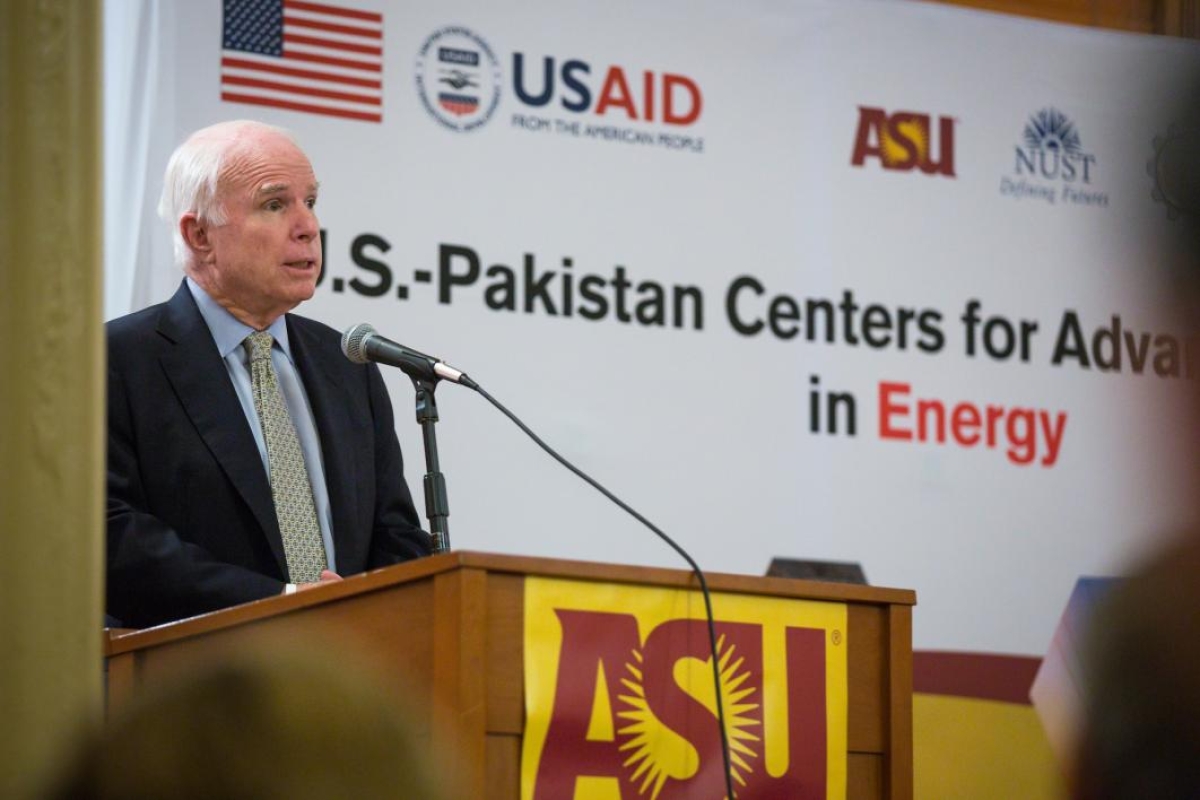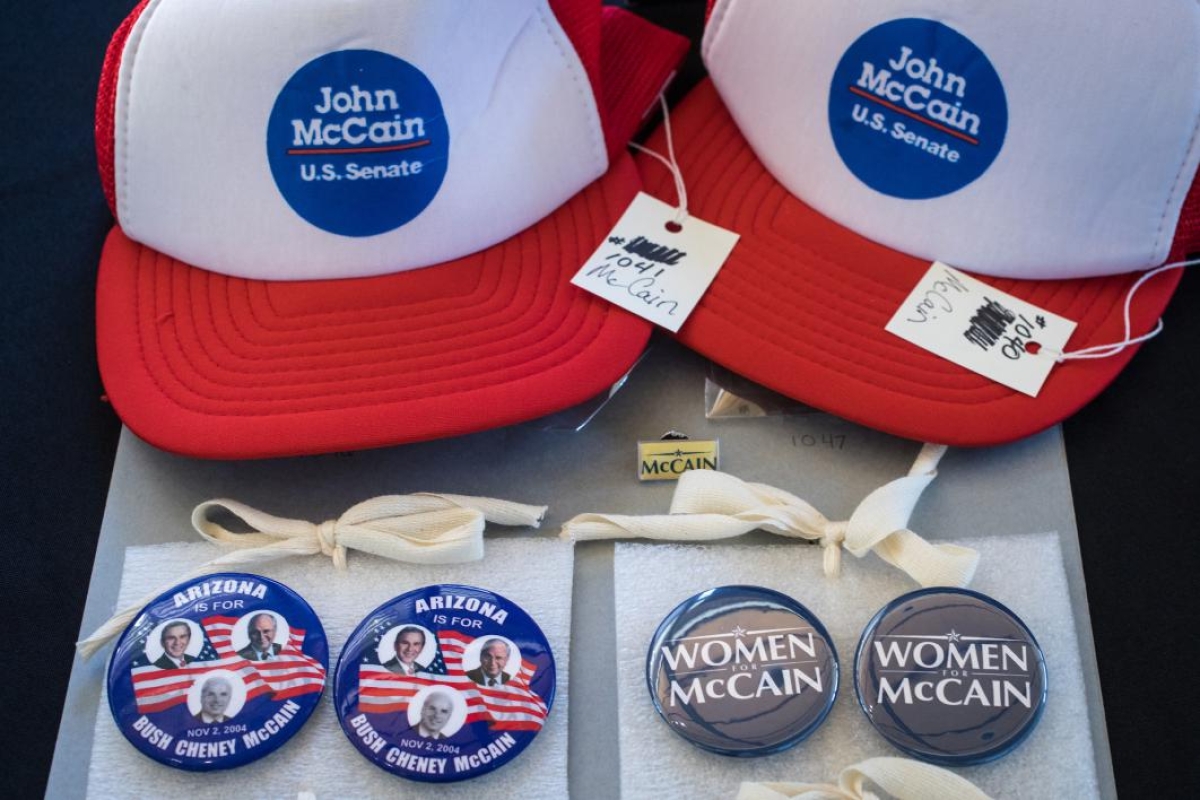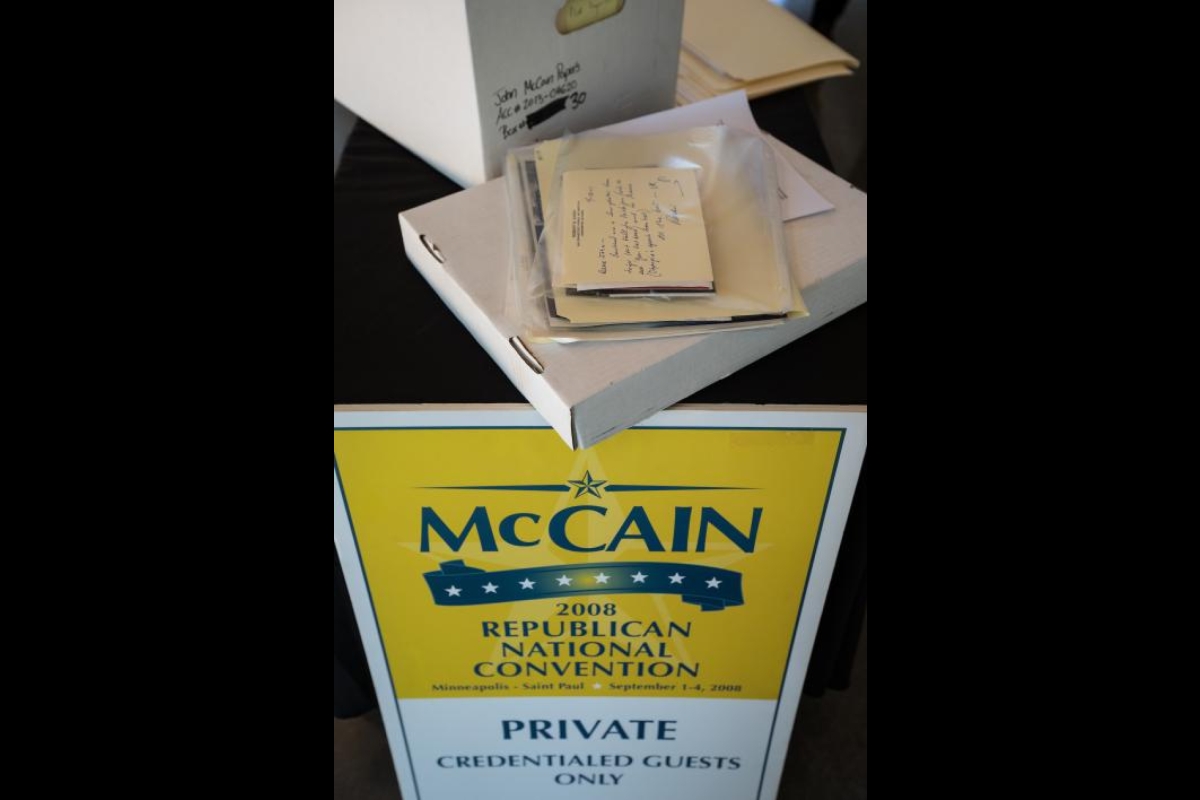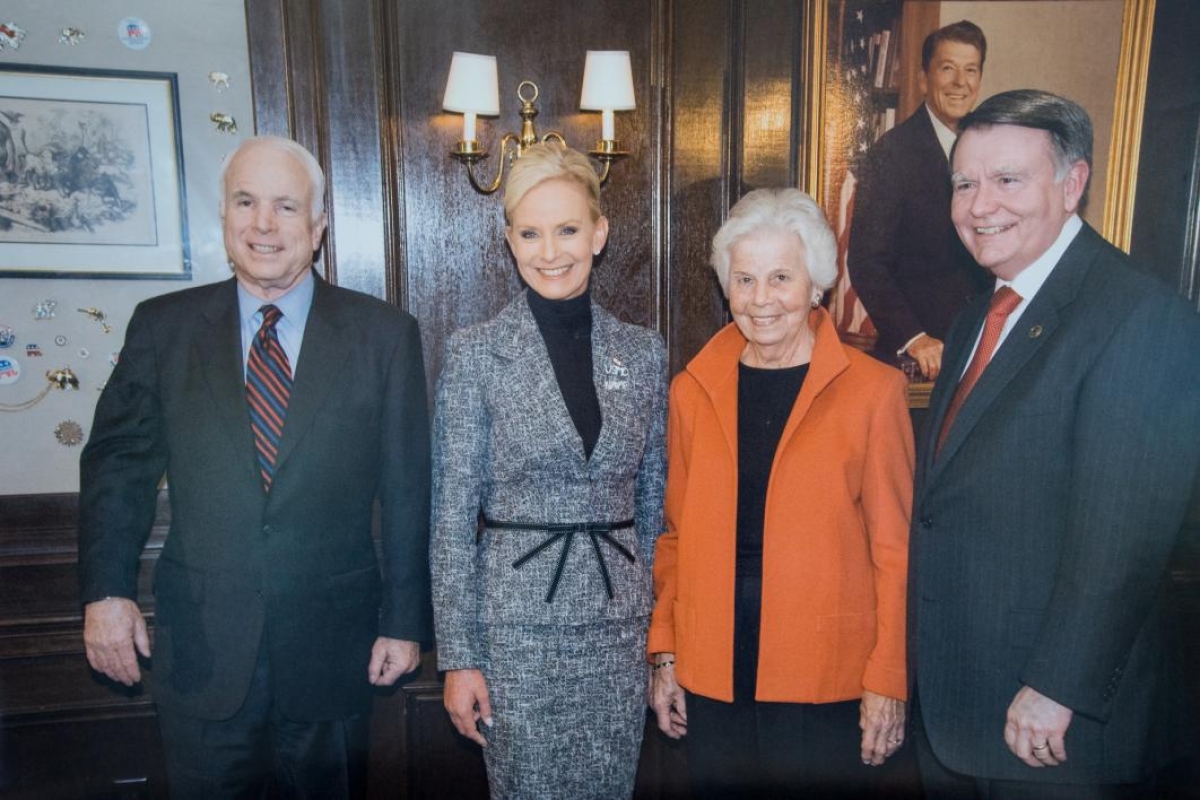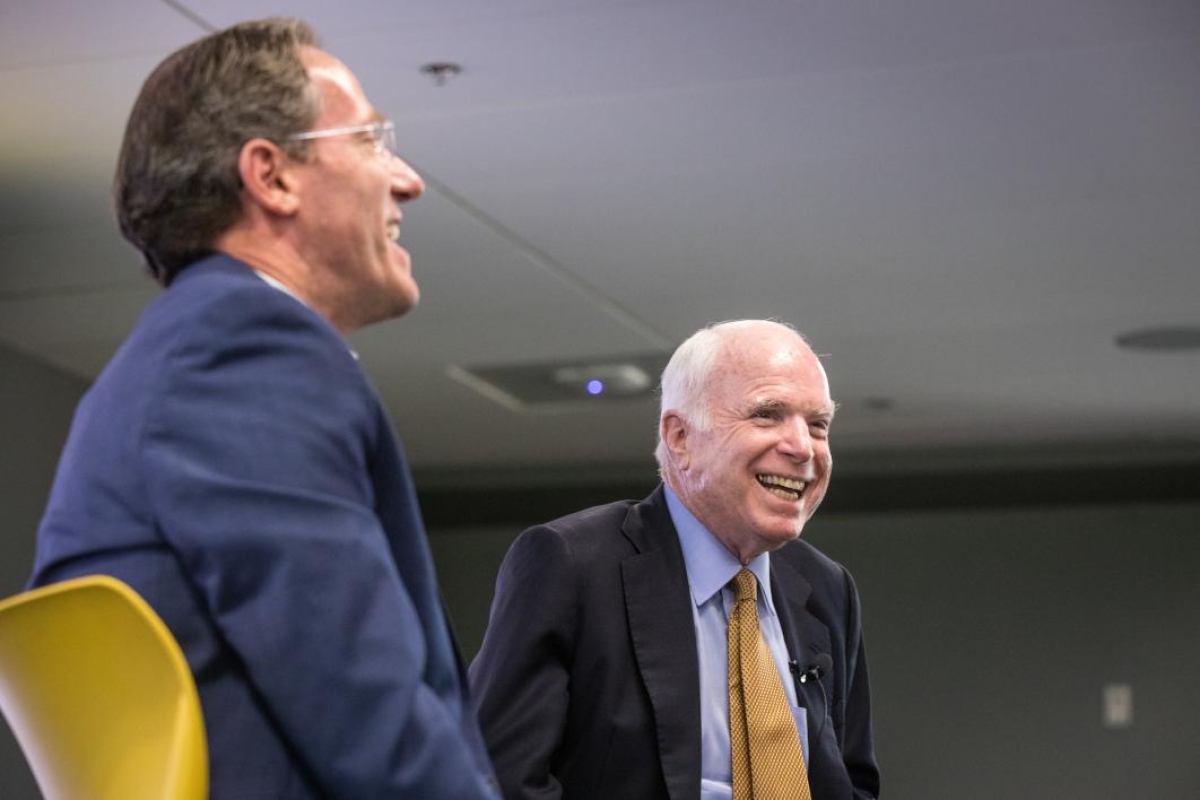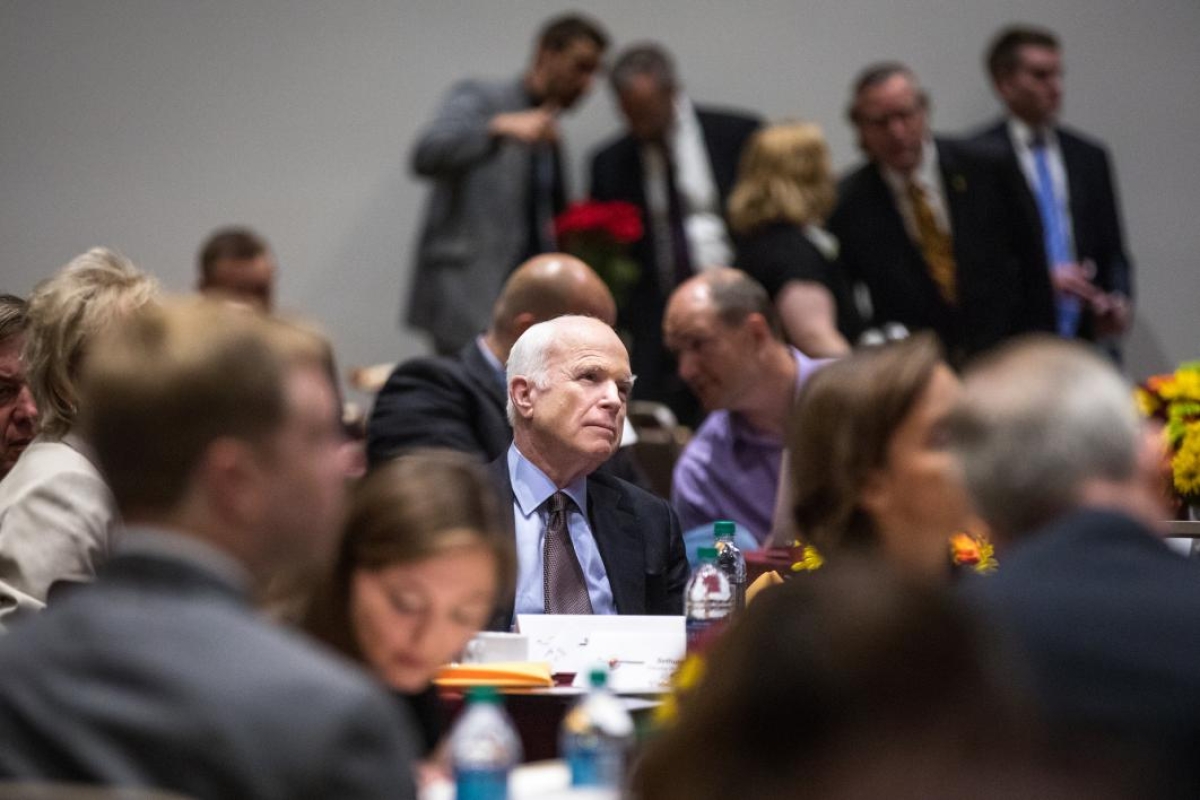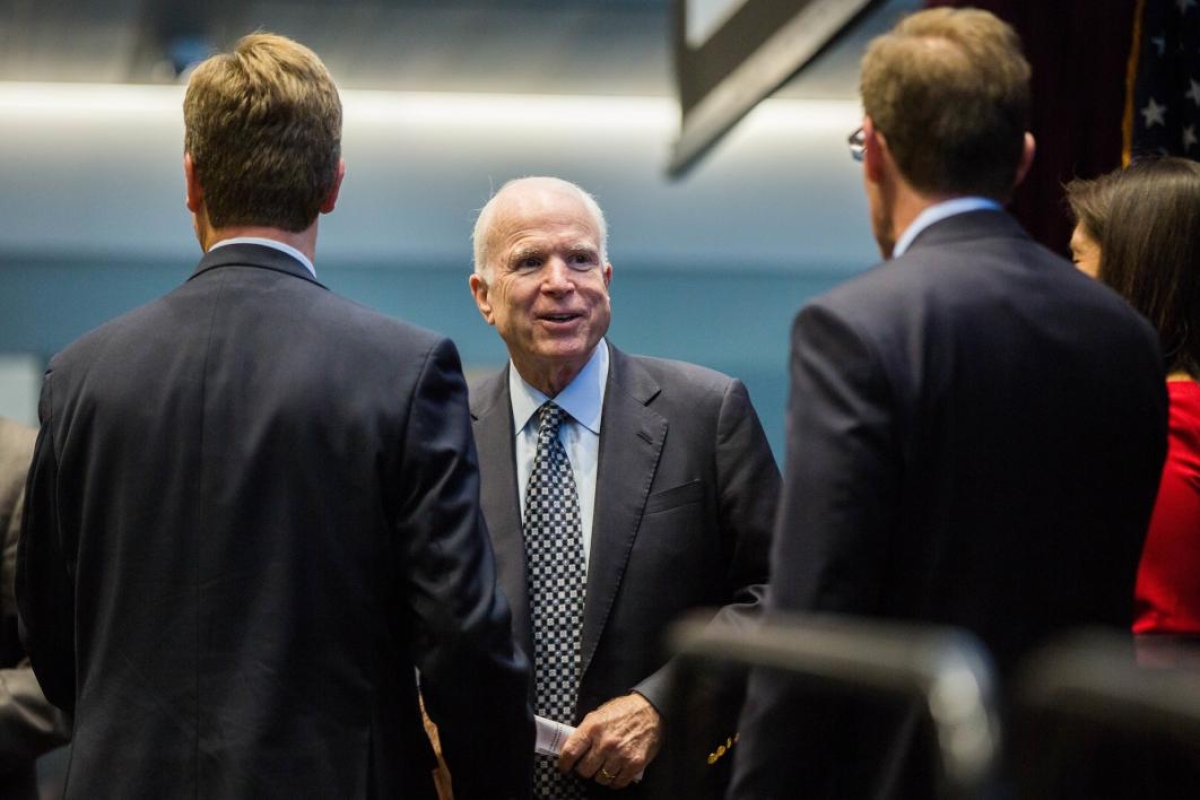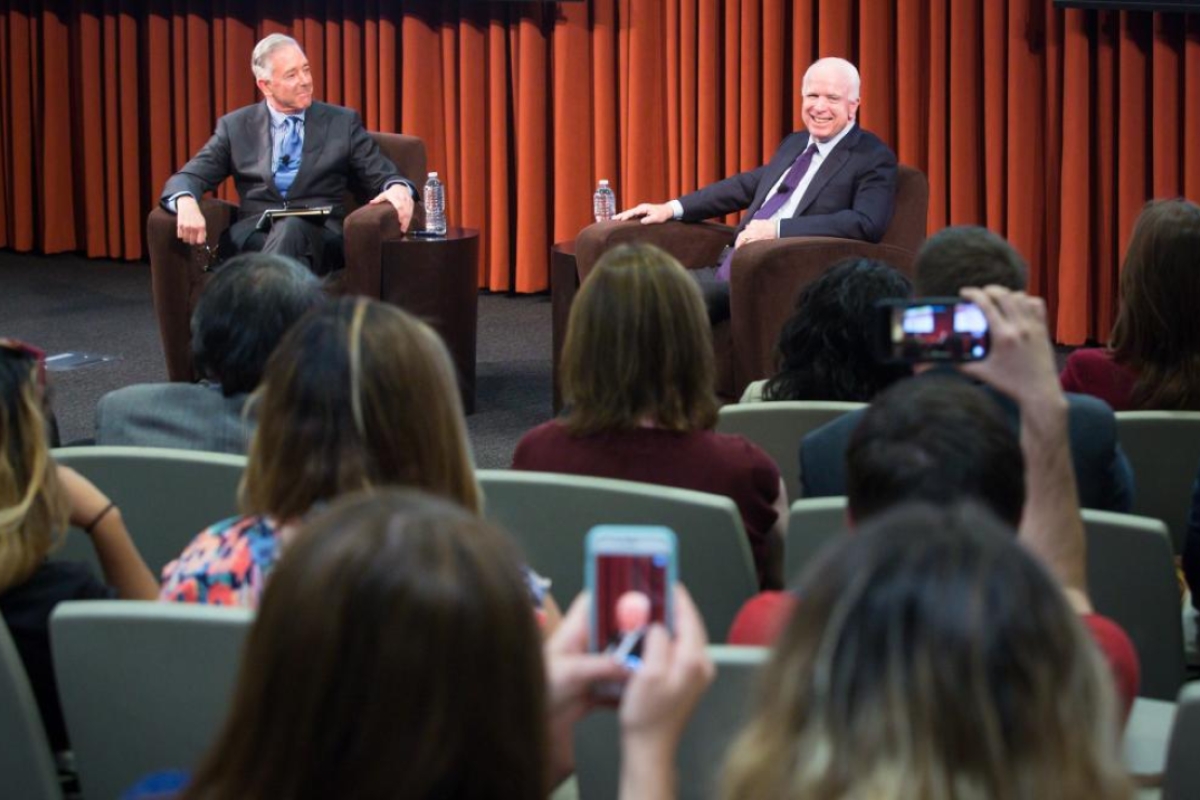Editor's note: For additional in-depth coverage and commentary on the life of Sen. John McCain, please visit azpbs.org. Also, President Michael Crow speaks on CNN about the senator.
John McCain represented Arizona for 35 years, and his legacy has touched Arizona State University through philanthropy, public service and community projects.
McCain died Saturday after a yearlong battle with brain cancer. The war hero, who was a Republican, was 81 years old.
“The entire Arizona State University community joins the nation in mourning the loss of Sen. John McCain,” said ASU President Michael M. Crow. “Sen. McCain had an extraordinary impact on this university, the state of Arizona, our nation and the world. He represented the best of America, and his passing leaves a void that will not easily be filled.
“It’s been said many times before, but bears repeating now: Sen. McCain is a true America hero. He dedicated his life to serving this great nation, never wavering in his belief in the inherent strength and goodness of America and its promise. He believed that our greatest assets could be found in the most unlikely places, and that the values that unite us as Americans are far greater than that which divides us.”
The U.S. senator met with students last summer as part of the Rio Salado 2.0 project, an initiative to transform the riverbed that runs through the Valley. He told the students he supported the project because he was starting to think about his legacy.
“We want to make this an example to the rest of the state, as well as the nation,” he said at the August 2017 event. “I’ll tell you whose plan it is, and who is going to make it work, and that’s ASU.”
McCain’s most visible connection to ASU is the namesake McCain Institute for International Leadership, a nonprofit and nonpartisan education and research center based in Washington, D.C. The center was launched in 2012 with a $9 million gift from the McCain Institute Foundation, a charitable trust founded by McCain, and provides internship opportunities for undergraduate and graduate students. In 2017 it hosted 20 events on human trafficking, international security, and leadership, and partnered with 31 organizations in the U.S. and around the world.
“My heart is so deeply heavy given the passing of Sen. John McCain, who I am ever proud to have had as a dedicated mentor,” said Ambassador Kurt Volker, executive director of the McCain Institute. “He was a giant, the likes of which few our country have seen. His character, values and example impacted the world over, with much of his immense positive influence on leaders, emerged and emerging, still to come. Our prayers and condolences are with his incredible family, which sustained him, and endures.”
LEARN: Senator, his wife envisioned McCain Institute as unique think tank
McCain visited ASU’s campuses several times in recent years to share his expertise on international and domestic politics, sometimes in blunt terms. In August 2017, he was at the Polytechnic campus to speak at the first ASU Congressional Conference on Cybersecurity, where he warned that the White House needs a plan to combat hacking: “I can assure you our enemies are not junior varsity. … If they’re able to change the results of a presidential election, then they’re able to change democracy.”
In February 2016, McCain sat for a public interview with Jeffrey Cunningham, host of the “Iconic Voices” video series, at the Walter Cronkite School of Journalism and Mass Communications at the downtown Phoenix campus.
In the conversation, he lamented the high rate of student debt among millennials and worried about terrorist attacks on American soil. Yet he remained optimistic: “My friends, America is the greatest and strongest nation on Earth. Have no doubt about it.”
In October 2016, McCain visited the Arizona PBS studio in the Walter Cronkite School of Journalism and Mass Communication at the downtown Phoenix campus to debate his Democratic opponent, Ann Kirkpatrick. The following month, he defeated Kirkpatrick to secure his sixth term in the U.S. Senate.
ASU is also home to the McCain Collection. In 2012, the senator donated his papers to the university. In the next few months, 800 boxes of materials including records, photographs and correspondence dating back to 1983 will be shipped from his offices in Washington, D.C., to ASU Library, where they will be accessible to scholars, historians and the public.
“Throughout his life Sen. McCain demonstrated an irrepressible spirit that would lead him to take on some of the greatest challenges of our time,” Crow said. “He inspired the nation with his character-driven leadership and steadfast commitment to promoting freedom, democracy, national security and human rights.
“We will remember Sen. McCain as a fighter. Never one to back down from a challenge, he saw opportunity where others saw obstacles. Whether working with colleagues across the political spectrum, taking difficult positions on important issues, or showing up when it counted most, Sen. McCain understood that real leadership takes courage. And more, even in defeat, which he faced after the 2008 presidential election, he showed the nation graciousness and provided us all a compelling, unifying example.”
McCain is survived by his wife, Cindy McCain, who sits on the McCain Institute’s Human Trafficking Advisory Council. The council worked with ASU students in 2014 to launch a chapter of All Walks Project, a student-led nonprofit organization focused on raising awareness of domestic sex trafficking.
ASU Foundation CEO Gretchen Buhlig said the institute will carry on McCain’s legacy.
“John McCain was an exemplary leader — through his heroism in Vietnam, his tireless work on behalf of the people of Arizona in the U.S. Congress, and with his commitment to be a steadfast voice on behalf of human rights, the next generation of international leaders, and victims of human trafficking around the world,” she said.
“He was a leader for the ASU community as well, inviting us to partner with him in the creation of the McCain Institute for International Leadership. We will continue to empower the institute to be as influential and positive a force as its namesake.”
Top photo: Sen. John McCain discusses Rio Salado 2.0 on ASU's Tempe campus Aug. 25, 2017. Photo by Charlie Leight/ASU Now
More Law, journalism and politics
Can elections results be counted quickly yet reliably?
Election results that are released as quickly as the public demands but are reliable enough to earn wide acceptance may not always be possible.At least that's what a bipartisan panel of elections…
Spring break trip to Hawaiʻi provides insight into Indigenous law
A group of Arizona State University law students spent a week in Hawaiʻi for spring break. And while they did take in some of the sites, sounds and tastes of the tropical destination, the trip…

LA journalists and officials gather to connect and salute fire coverage
Recognition of Los Angeles-area media coverage of the region’s January wildfires was the primary message as hundreds gathered at ASU California Center Broadway for an annual convening of journalists…


